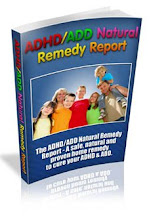Attention deficit disorder (ADD) can be battled from many directions. Drugs, behavior modification, nutrition, and exercise are among the various means with which professionals combat ADD in children. Good nutrition is a vital part of children's health, whether they have ADD or not. But in a child with ADD, proper nutrition is critical. In the initial stages of ADD, taking nutritional supplements is an alternative to treatment.
A low blood sugar level (glucose level) is one of the main causes of ADD in children. This condition makes children drowsy in class and restless when they are bored. Children with glucose deficiencies suffer a shorter inattentive phase. You can maintain your child's blood sugar level by making glucose part of his breakfast, the most important meal of the day as far as children are concerned.
For an ADD child, vitamin B is important as it helps to free the energy in glucose. A deficiency of vitamin B in the diet makes a child aggressive and depressed. A child may not get all varieties of vitamin B (there are 12 essential parts to vitamin B) from his normal diet. A good multivitamin capsule can be used to supplement normal food. Cereal is also a good source of vitamin B. Iron is an essential mineral as it helps in transporting oxygen to the cells (primarily, brain cells) through the blood system. Iron deficiency leads to anemia. Folic acid is essential for the formation of red and white blood cells. Without the proper amount of folic acid in the body, a child feels tired, irritable, and forgetful. Folic acid is obtained from vegetables and fruits. Zinc deficiencies also cause ADD symptoms. A lack of a sufficient amount of zinc makes a child feel dizzy and depressed. Cereals and peanuts are good sources of zinc.
Attention Deficit Disorder provides detailed information on Attention Deficit Disorder, Adult Attention Deficit Disorder, Attention Deficit Hyperactivity Disorder, Attention Deficit Disorder Tests and more. Attention Deficit Disorder is affiliated with Children with ADHD.
Attention Deficit Disorder Diet








